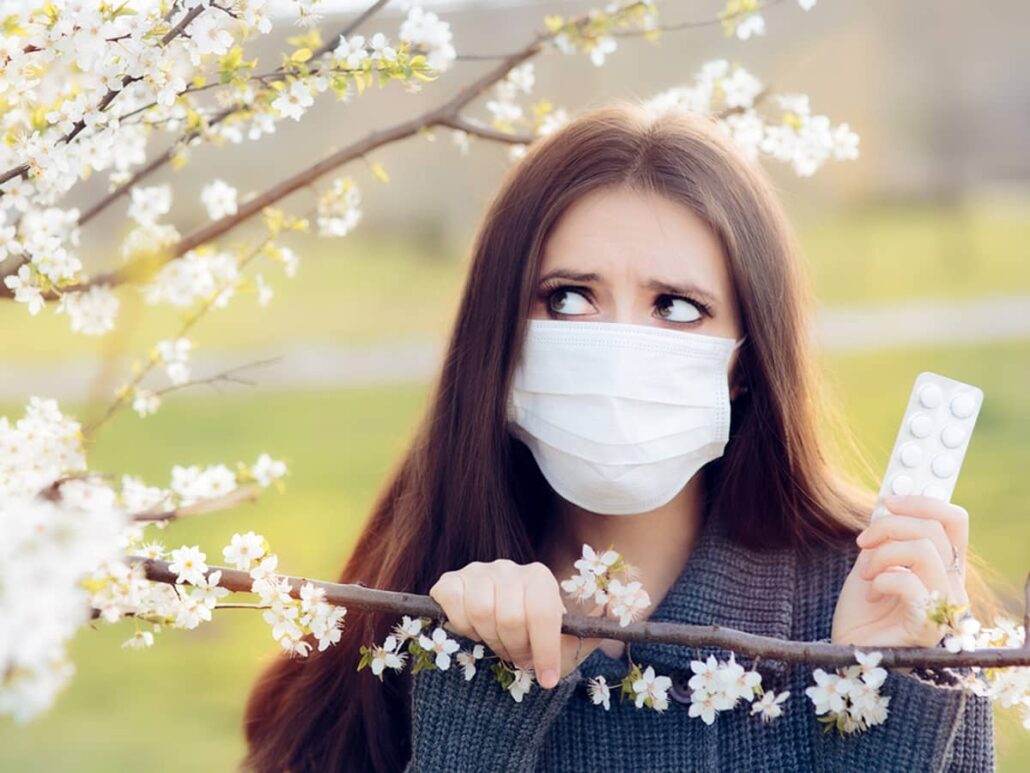🩺 Reviewed by Dr. Robert Mignone, DO
Board-Certified ENT Specialist
Becker ENT & Allergy – Monroe Twp, NJ
Got that gross feeling like something’s dripping down your throat? It’s probably post-nasal drip — and yeah, it’s as annoying as it sounds.
It happens when your nose makes too much mucus, and instead of coming out, it slides down your throat. This can make you cough, clear your throat a lot, or feel like something’s stuck back there.
The good news? Post nasal drip treatment is usually easy. In this guide, you’ll learn what causes it and what actually helps — from quick home fixes to real treatments that doctors use.

What is Post Nasal Drip?
Post-nasal drip is when mucus from your nose starts to drip down the back of your throat instead of coming out the front. It can make your throat feel weird — like it’s scratchy, full, or hard to clear.
According to WebMD, this happens when your nose gets irritated or blocked, usually from things like allergies, a cold, or dry air. Your body makes more mucus to protect itself, but it ends up sliding into your throat instead.
What are Post Nasal Drip Common Symptoms?
Post-nasal drip can be super uncomfortable. Some symptoms of postnasal drip are:
- A sore or scratchy throat
- A cough that just won’t go away
- Trouble swallowing
- That annoying feeling like something’s stuck in your throat
All of this happens because extra mucus is dripping down and building up in the back of your throat.
A proper diagnosis is the first step toward a symptom-free life
Don’t wait! Schedule your allergy evaluation with Becker ENT & Allergy in Philadelphia or New Jersey.
Common Causes of Post Nasal Drip
Post-nasal drip happens when your body makes more mucus than usual, or when mucus doesn’t drain properly. Here are the most common reasons why it builds up:
Sinus Problems or Nasal Blockages
A deviated septum or nasal polyps can block normal drainage, making mucus build up in the back of the throat.
Colds and Viral Infections
When you have a cold or the flu, your nose and sinuses can get inflamed. That triggers your body to make extra mucus — and it often ends up sliding down your throat. This usually goes away on its own.
Bacterial Infections
Infections like sinusitis or even pneumonia can cause thick mucus and a sore throat. These might need antibiotics if they don’t clear up quickly.
Allergies
Pollen, dust, pet dander, and mold can all irritate your nose and sinuses, causing your body to make more mucus. If you have seasonal allergies, post-nasal drip can stick around for weeks.
Dry Air or Weather Changes
When the air is dry (especially in winter), your nose can get irritated and trigger mucus production to protect itself.
Irritants in the Air
Smoke, perfumes, cleaning sprays, and other strong smells can also trigger post-nasal drip in some people.
What We See in Our Clinic
At Becker ENT & Allergy, we meet a lot of people who are dealing with post-nasal drip. Some of them have had symptoms like a constant cough, stuffy nose, or the feeling of mucus in the back of their throat for weeks — even months. Many are surprised to learn that things like allergies, sinus swelling, or even changes in weather can be the cause.
One patient, JL, had trouble breathing through their nose for years. It was so bad that it made sleeping really difficult. When JL came to see Dr. Robert Mignone, we found that they had chronic rhinitis and post-nasal drip. Dr. Mignone suggested a simple in-office procedure called turbinate reduction, which helps open up the nose and reduce mucus.
JL said that Dr. Mignone explained everything clearly and helped them feel calm throughout the process. After the treatment, JL finally felt relief and was able to breathe and sleep much better. It’s stories like this that remind us how important it is to get the right help — and how much better life can feel once you’re breathing clearly again.
Treatments for Post-Nasal Drip
Post-nasal drip treatment depends on what’s causing it — allergies, colds, sinus infections, medications, or structural problems in the nose. The good news? There are effective options to get relief from postnasal drip, whether it’s a chronic cough, constant throat clearing, or a runny nose that won’t quit.
Over-the-Counter Medications
- Antihistamines
Great for allergy-related postnasal drip and allergic rhinitis. These help stop your body from reacting to allergens by reducing mucus, sneezing, and runny nose.
Examples: Claritin, Zyrtec, Allegra (non-drowsy); Benadryl (stronger but can cause drowsiness) - Decongestants
Help reduce swelling inside your nose so mucus drains better — important during cold symptoms or sinus pressure. Use sprays like Afrin for no more than 3 days to avoid rebound congestion.
Examples: Sudafed, phenylephrine, Afrin nasal spray - Steroid Nasal Sprays
Calm inflammation in your nasal passages and reduce ongoing mucus production. These are helpful if post-nasal drip is caused by chronic sinus inflammation or allergies.
Examples: Flonase, Nasacort - Expectorants
Loosen thick mucus and make it easier to clear your throat and breathe.
Example: Mucinex (guaifenesin)
Prescription Treatments
- Prescription Nasal Sprays
For more stubborn symptoms, your doctor may suggest sprays like ipratropium to dry up mucus or beclomethasone for stronger inflammation relief. - Antibiotics
Only needed if your postnasal drip is caused by a bacterial sinus infection. These help fight the infection and reduce excess mucus. - ACE Inhibitor Adjustment
If you’re on ACE inhibitors for high blood pressure and have a chronic cough, ask your doctor. These medications can trigger postnasal drip-like symptoms.
Home Remedies for Postnasal Drip
- Nasal Rinse / Neti Pot
A daily nasal rinse using saline (or a neti pot) helps flush out allergens, mucus, and irritants from your nose — giving you natural relief from postnasal drip. - Warm Water and Salt Gargle
Gargling warm salt water helps soothe the throat and loosen mucus. Also, drinking warm water throughout the day keeps mucus thin and easier to clear. - Steam & Hot Showers
Steam from a shower or bowl of hot water can open nasal passages and bring relief from a stuffy nose. - Use a Humidifier
Adding moisture to the air (especially in dry seasons) prevents thick mucus. Just remember to clean it often.
What to Avoid
- Smoking
Major trigger for mucus buildup and nose/throat irritation. - Dairy Products
Some people notice thicker mucus after eating dairy. - Spicy or Greasy Foods
Can irritate your throat and worsen throat clearing symptoms.
When Medical Procedures Are Needed
- Other Treatment Options
ENT doctors may suggest immunotherapy (allergy shots), surgery, or combining multiple treatments based on your case., expectorants, and steroid nasal sprays. Your doctor will be able to recommend the most appropriate medication for your specific needs and help you find relief from your symptoms. - Nasal Endoscopy
If postnasal drip won’t go away, an ENT might use a nasal endoscopy (a tiny camera that looks inside your nose) to find the cause — like hidden inflammation or polyps. - Endoscopic Sinus Surgery
If you have chronic sinus infection or a structural issue like a deviated septum or polyps, endoscopic sinus surgery might be needed to open your sinuses and allow proper drainage.
When to See a Doctor for Post Nasal Drip
It is important to see an ENT specialist Philadelphia if you are experiencing symptoms of post-nasal drip that do not improve with home remedies or over-the-counter medications.
Your doctor may recommend nasal irrigation, which involves flushing out the nasal passages with a saline solution to reduce inflammation and mucus production.
If your post-nasal drip is caused by an infection in the ear, your doctor may prescribe antibiotics to treat the infection. In some cases, respiratory infections can also cause post-nasal drip, so it is important to get checked out if your symptoms persist.



Why You Can Trust Becker ENT & Allergy for your Post Nasal Drip Treatment
📌 At Penn Medicine Becker ENT & Allergy, this content was reviewed by board-certified ENT doctors with real experience treating patients across New Jersey and Pennsylvania. Here’s why it’s trustworthy:
[📍 Meet Our Team] [📞 Contact Us] [🌐 Clinic Locations]
Put Your Trust in an Expert for Reliable Post Nasal Drip Relief
If you or someone you know suffers from post-nasal drip, you know how annoying and uncomfortable it can be. Don’t let this common condition affect the quality of your life any longer—Penn Medicine Becker ENT & Allergy is here to help.
Our skilled doctors have the knowledge and expertise to address post-nasal drip and provide you with relief. Don’t hesitate to contact us to learn more about your treatment options and take the first step towards feeling better. We are here to help you regain control of your health and improve your overall well-being.

